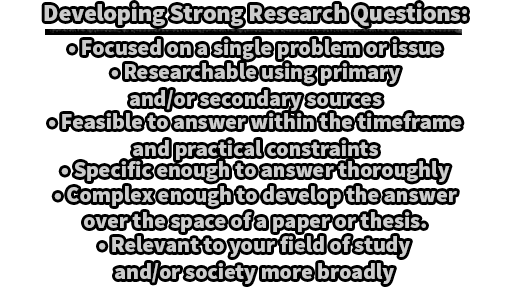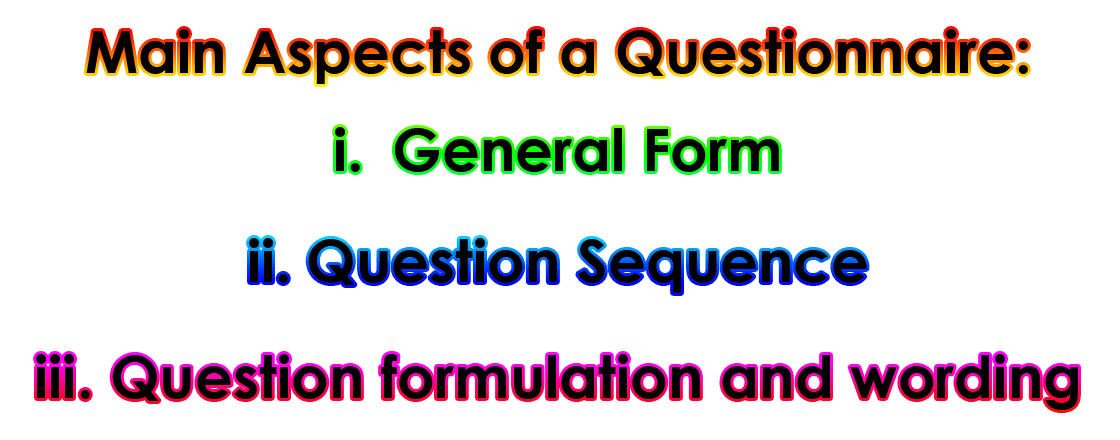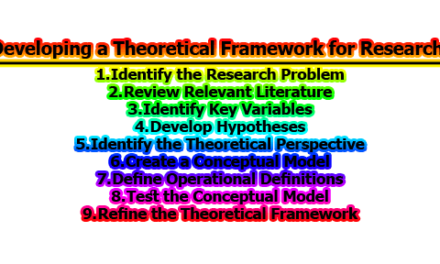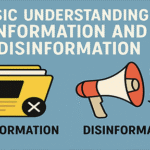A research question is a question that a study or research project aims to answer. This question often addresses an issue or a problem, which, through analysis and interpretation of data, is answered in the study’s conclusion. In most studies, the research question is written so that it outlines various aspects of the study, including the population and variables to be studied and the problem the study addresses. In the rest of this article, we are going to present you about Developing Strong Research Questions, Types and Characteristics of Research Questions, and Common Mistakes to Avoid When Writing a Research Paper.
Developing Strong Research Questions:
A good research question is absolutely crucial to guide your research paper, project, or thesis. It pinpoints exactly what you would like to find out and gives your work a clear focus and purpose. All research questions should be:
- Focused on a single problem or issue.
- Researchable using primary and/or secondary sources.
- Feasible to answer within the timeframe and practical constraints.
- Specific enough to answer thoroughly.
- Complex enough to develop the answer over the space of a paper or thesis.
- Relevant to your field of study and/or society more broadly.
In a research paper or essay, you will generally write a single research question to guide your reading and thinking. The answer that you develop is your thesis statement the central assertion or position that your paper will argue for.
In a better-quality research project, such as a thesis or dissertation, you would possibly have multiple research questions but they should all be clearly related and focused on a central research problem.
Types of Research Questions:
Research questions can be classified into different categories, depending on the type of research to be done. Knowing what type of research one wants to do—quantitative, qualitative, or mixed-methods studies—can help in determining the best type of research question to use.
Doody and Bailey (2016) suggest a number of common types of research questions, as outlined below:
Quantitative Research Questions: Three Rules for Quantitative Research Questions
- They Begin with “How”, “What”, or “Why” and can NEVER be answered by a simple Yes or No.
- Specify the independent and dependent variables.
- If your questions deal with connections among multiple variables, you will again – use relate or compare – just as you did in the purpose statement.
Qualitative Research Questions: Qualitative research questions may concern broad areas of research or more specific areas of study. Similar to quantitative research questions, qualitative research questions are linked to research design. Unlike their quantitative counterparts, though, qualitative research questions are usually adaptable, non-directional, and more flexible. As a result, studies using these questions generally aim to “discover,” “explain,” or “explore.”
Ritchie et al. (2014) and Marshall and Rossman (2011) have also further categorized qualitative research questions into a number of types, as listed below:
- Contextual research questions seek to describe the nature of what already exists.
- Descriptive research questions attempt to describe a phenomenon.
- Emancipatory research questions aim to produce knowledge that allows for engagement in social action, especially for the benefit of disadvantaged people.
- Evaluative research questions assess the effectiveness of existing methods or paradigms.
- Explanatory research questions seek to expound on a phenomenon or examine reasons for and associations between what exists.
- Exploratory research questions investigate little-known areas of a particular topic.
- Generative research questions aim to provide new ideas for the development of theories and actions.
- Ideological research questions are used in research that aims to advance specific ideologies of a position.
Mixed-methods studies: Mixed-methods studies typically require a set of both quantitative and qualitative research questions. Separate questions are appropriate when the mixed-methods study focuses on the significance and differences in quantitative and qualitative methods and not on the study’s integrative component. Researchers also have the option to develop a single mixed-methods research question. This suggests an integrative process or component between the study’s quantitative and qualitative research methods.
Characteristics of Good Research Questions:
The most successful research topics are narrowly focused and carefully defined but are important parts of a broad‑ranging, complex problem. Some of the characteristics are as follows:
- A good research problem must be timely and or up-to-date in today’s modern world.
- The problem can be stated clearly and concisely.
- The problem generates research questions.
- It should be measured accurately by research instruments.
- It is grounded in theory.
- It is realistic. The result is empirical and not manipulated. The researcher respects and upholds the integrity of the evidence.
- It relates to one or more academic fields of study.
- It has a base in the research literature.
- It has potential significance/importance.
- It is doable within the time frame, and budget.
- Sufficient data are available or can be obtained.
- The researcher’s methodological strengths can be applied to the problem.
- The problem is new; it is not already answered sufficiently.
- It must be researchable through a scientific methodology.
- It must be innovative or a probable step to produce novel solutions.
- Its solution must be relevant and beneficial to a good number of people.
- It should be interesting and challenging to solve especially for the researcher and the area of specialization to which he belongs.
- It has enough related readings to help the researcher in making a comprehensive exploration.
- Its solution is significant to community or local and national development.
Common Mistakes to Avoid When Writing a Research Paper:
- Lack of research before choosing a thesis statement or research question.
- Lack of a strong thesis statement or question.
- Failure to make appropriate connections between the thesis statement and supporting statements.
- Lack of strong, relevant data to support statements.
- Failure to properly cite sources.
Finally, remember that, while a research question is significant and a great way to start an essay assignment, it may not go in the paper itself; however, the specific answer you discover to your research question could be the basis for your thesis statement.
References:
- Kishore J, Vasundhra S, Anand T. Formulation of a research question. Indian J Med Spec. 2011; 2:184–8.
- Alvesson M, Sandberg J. Generating research questions through problematization. Acad Manage Rev. 2011; 36:247–71.
- Cresswell JW. Research design: Qualitative, quantitative, and mixed method approaches. Can J Univ Contin Educ. 2009;35:121–3.
- Punch KF. Introduction to Social Research – Quantitative and Qualitative Approaches.London: Sage; 2005. pp. 82–114.
- Doody, O., & Bailey, M. E. (2016). Setting a research question, aim, and objective. Nurse Researcher, 23 (4). https://journals.rcni.com/doi/pdfplus/10.7748/nr.23.4.19.s5
- Marshall, C., & Rossman, G. B. (2014). Designing qualitative research. Sage publications.Google Books
- Ritchie, J., Lewis, J., Nicholls, C. M., & Ormston, R. (Eds.). (2013). Qualitative Research Practice: A Guide for Social Science Students and Researchers. Thousand Oaks, CA: Sage. http://jbposgrado.org/icuali/Qualitative%20Research%20practice.pdf
- Tashakkori, A., & Teddlie, C. (Eds.). (2010). Sage Handbook of Mixed Methods in Social & Behavioral Research. Thousand Oaks, CA: Sage. https://doi.org/10.4135/9781506335193
- Jones R. Choosing a research question. Asia Pac Fam Med. 2003; 2:42–4.
- https://www.scribbr.com/research-process/research-questions/

Assistant Teacher at Zinzira Pir Mohammad Pilot School and College










